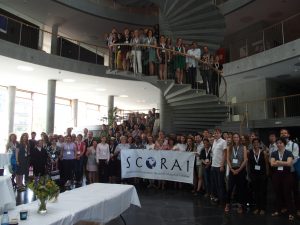By Lucie Middlemiss, University of Leeds
Questions to guide discussions
- It is generally agreed that engaging in environmentally-friendly behaviours takes up more time than equivalent non-environmental behaviours. What kinds of inequality might be associated with the amount of time that ‘being green’ takes up?
- Even in relatively wealthy societies, some people are under consuming resources, while others are over consuming. What kinds of sustainable consumption policy/practice might put further strain on under-consumers?
- I believe that people’s needs are relative, and are affected by their social, personal and economic contexts. In environmental terms this might mean that some people are entitled to more resources than others. Do you agree?
Biography
Lucie Middlemiss’s research and teaching critically examines the topic of sustainable development, engaging social concepts such as consumption, poverty and community to provide a richer picture of the social world in which environmental problems occur. Recent work has included a theoretical examination of the implications of individualisation for sustainable development (2014); and a project using the lived experience of fuel poverty to better understand household energy vulnerability (2015). She is currently writing the first textbook on sustainable consumption, for advanced UG and PG teaching, to be published in 2018.
Recommended readings
ANANTHARAMAN, M. 2016. Elite and ethical: The defensive distinctions of middle-class bicycling in Bangalore, India. Journal of Consumer Culture.
BÜCHS, M. & SCHNEPF, S. V. 2013. Who emits most? Associations between socio-economic factors and UK households’ home energy, transport, indirect and total CO2 emissions. Ecological Economics, 90, 114-123.
EVANS, D. 2011. Thrifty, green or frugal: reflections on sustainable consumption in a changing economic climate. Geoforum, 42, 550-557.
FENNEY, D. & SNELL, C. 2011. Exceptions to the green rule? A literature investigation into the overlaps between the academic and UK policy fields of disability and the environment. Local Environment, 16, 251-264.
ISENHOUR, C. 2012. On the Challenges of Signaling Ethics without the Stuff: Tales of Conspicuous Green Anti-Consumption. In: CARRIER, J. G. & LUETCHFORD, P. G. (eds.) Ethical consumption: Social value and economic practice. Berghahn Books.
MACGREGOR, S. 2016. Go ask ‘Gladys’: why gender matters in sustainable consumption research. Discover Society.
MIDDLEMISS, L. & GILLARD, R. 2015. Fuel poverty from the bottom-up: Characterising household energy vulnerability through the lived experience of the fuel poor. Energy Research & Social Science, 6, 146-154.
Additional resources
A clip from the John Oliver show on a Whole Foods story about ‘asparagus water’. Whole Foods is a shop oriented towards ‘green’ consumers. Here John Oliver shows in a comic way that they also belong to a particular market:
www.youtube.com/watch?v=R9gGL1cnnhg.


